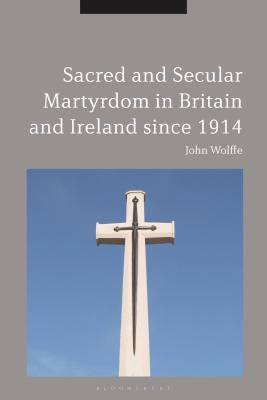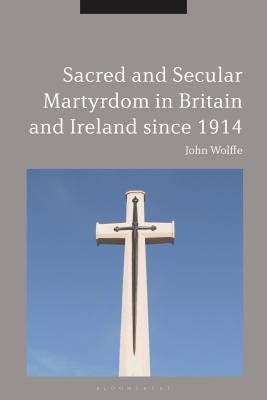
Bedankt voor het vertrouwen het afgelopen jaar! Om jou te bedanken bieden we GRATIS verzending (in België) aan op alles gedurende de hele maand januari.
- Afhalen na 1 uur in een winkel met voorraad
- In januari gratis thuislevering in België
- Ruim aanbod met 7 miljoen producten
Bedankt voor het vertrouwen het afgelopen jaar! Om jou te bedanken bieden we GRATIS verzending (in België) aan op alles gedurende de hele maand januari.
- Afhalen na 1 uur in een winkel met voorraad
- In januari gratis thuislevering in België
- Ruim aanbod met 7 miljoen producten
Zoeken
€ 254,45
+ 508 punten
Omschrijving
During and immediately after the First World War, there was a merging of Christian and nationalist traditions of martyrdom, expressed in the design of war cemeteries and war memorials, and the state funeral of the Unknown Warrior in 1920. John Wolffe explores the subsequent development of these traditions of 'sacred' and 'secular' martyrdom, analysing the ways in which they operated - sometimes in parallel, sometimes merged together and sometimes in conflict with each other.
Particular topics explored include the Protestant commemoration of Marian and missionary martyrs, and the Roman Catholic campaign for the canonization of the 'saints and martyrs of England'. Secular martyrdom is discussed in relation to military conflicts especially the Second World War and the Falklands. In Ireland there was a particularly persistent merging of sacred and secular martyrdom in the wake of the Easter Rising of 1916 although by the time of the Northern Ireland 'Troubles' in the later twentieth-century these traditions diverged. In covering these themes, the book also offers historical and comparative context for understanding present-day acts of martyrdom in the form of suicide attacks.
Particular topics explored include the Protestant commemoration of Marian and missionary martyrs, and the Roman Catholic campaign for the canonization of the 'saints and martyrs of England'. Secular martyrdom is discussed in relation to military conflicts especially the Second World War and the Falklands. In Ireland there was a particularly persistent merging of sacred and secular martyrdom in the wake of the Easter Rising of 1916 although by the time of the Northern Ireland 'Troubles' in the later twentieth-century these traditions diverged. In covering these themes, the book also offers historical and comparative context for understanding present-day acts of martyrdom in the form of suicide attacks.
Specificaties
Betrokkenen
- Auteur(s):
- Uitgeverij:
Inhoud
- Aantal bladzijden:
- 208
- Taal:
- Engels
Eigenschappen
- Productcode (EAN):
- 9781350019270
- Verschijningsdatum:
- 28/11/2019
- Uitvoering:
- Hardcover
- Formaat:
- Genaaid
- Afmetingen:
- 152 mm x 231 mm
- Gewicht:
- 453 g

Alleen bij Standaard Boekhandel
+ 508 punten op je klantenkaart van Standaard Boekhandel
Beoordelingen
We publiceren alleen reviews die voldoen aan de voorwaarden voor reviews. Bekijk onze voorwaarden voor reviews.









